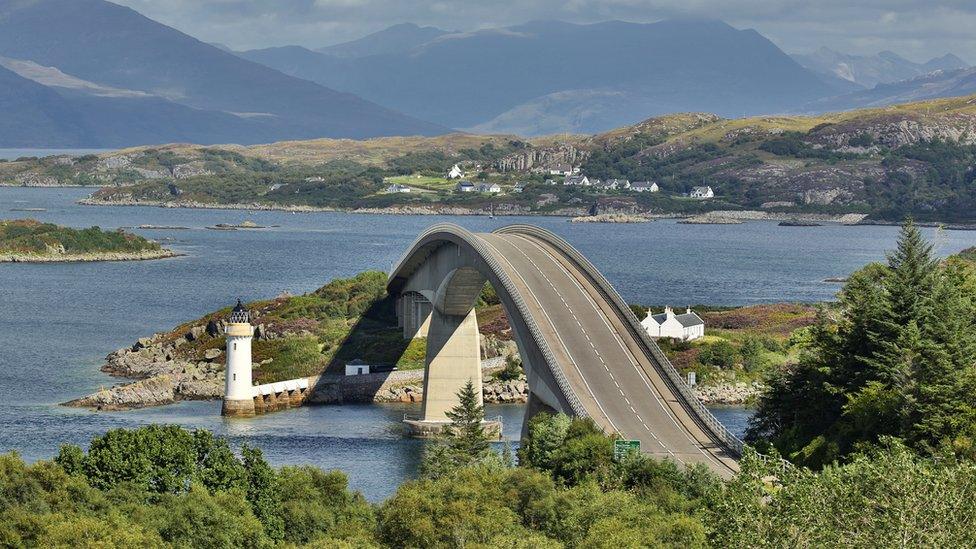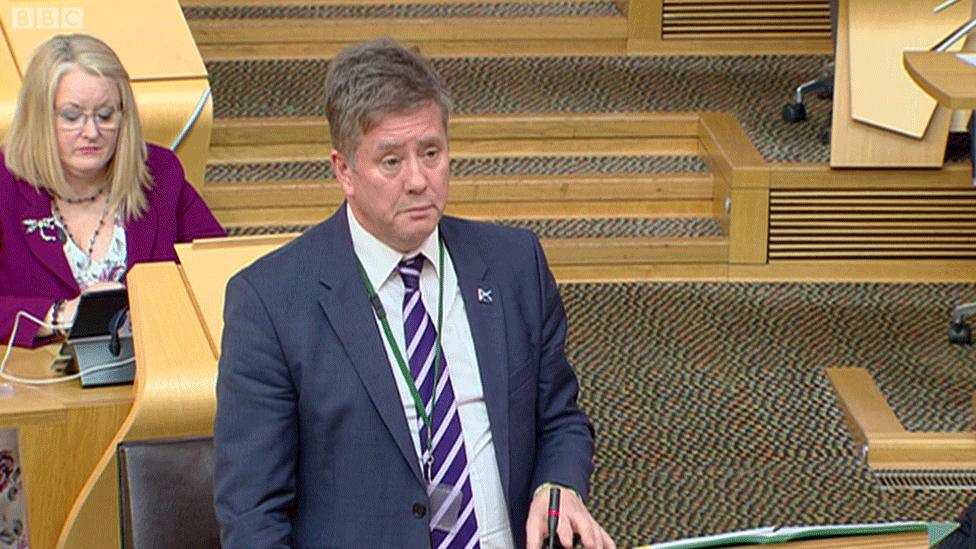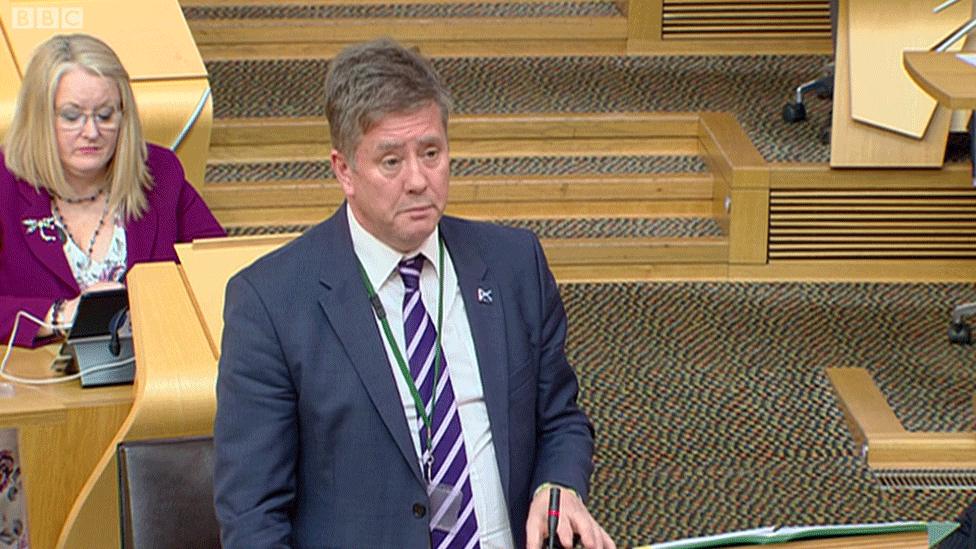A U-turn waiting to happen
- Published

The review of enterprise and skills agencies was a bumpy road for ministers
Policy wonks joke about the classic trap of government ministers: 'Something must be done,' goes the cry. "This is something. Therefore we must do it."
Yet that seems to have been a characteristic of the puzzling approach to the review of enterprise and skills agencies, begun after last year's Holyrood election.
Anyone who knows about the politics of the Highlands and Islands could guess that centralising the region's enterprise body was going to provoke a ferocious backlash.
The economic development agency is a rare case of a quango to which people have a real attachment. It has a social role, and its fore-runner was the catalyst, 51 years ago, that began the turnaround of centuries of decline for the Gaidhealtachd.
Half-baked?
The other puzzling element was that the policy seemed to be soft launched in half-baked form last October. Phase one floated some vague ideas. Members of the boards facing abolition weren't consulted or even told in advance. And without a clear plan, the HIE suggestion was only the most obvious of those that would set mountain hares running.
The idea that a minister could chair a national super-quango responsible for distributing public funds to universities was obviously going to run smack into questions about politicisation of academic research.
So the four boards - two for enterprise, one for skills, the other for tertiary education - are to maintain their autonomy and statutory role. The strategic oversight board will not have a statutory role. So while it can seek to align economic effort across the other quangos, with the four conveners as members, it probably won't have the clout to force compliance.

Economy Secretary Keith Brown confirmed that Scotland's enterprise agencies would retain their boards
There is a fifth quango being created as part of the new arrangements - an enterprise agency for the south of Scotland, similar in its role to the Highlands and Islands one. That was something of an afterthought for Keith Brown's statement to MSPs on Thursday. The main question about it seems to be where its boundary should lie.
The consensus is around Dumfries and Galloway with Scottish Borders council areas. But "there are other perspectives," Mr Brown said.
These perspectives might, for instance, include south of Scotland regional MSPs, who represent part of South Lanarkshire, part of South Ayrshire and into East Lothian. He is to wait until councillors are freshly elected in May to find out what the new administrations think.
What the economy secretary underlined is that the reason for launching the review remains a pressing one, and the strategic board has an important job to do in aligning effort and adding value. He cited, for instance, the problem of enterprise agency staff in the Highlands who have few connections into Scotland's exports and inward investment agency.
Productivity may have improved a bit. But economic growth remains slow, and a big challenge. Something still needs to be done.
- Published30 March 2017
